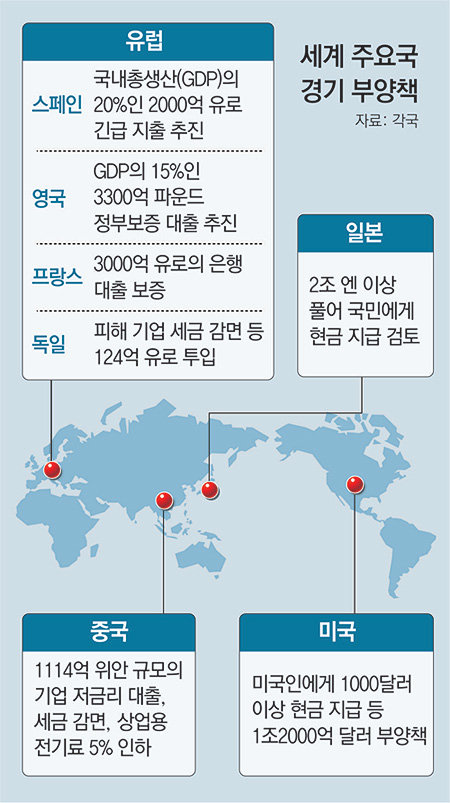U.S. to give $1,000 every American to fight coronavirus recession
U.S. to give $1,000 every American to fight coronavirus recession
Posted March. 19, 2020 07:54,
Updated March. 19, 2020 07:54

The U.S. plans on spending more than 1 trillion dollars by giving over 1,000 dollars to every citizen to tackle the novel coronavirus crisis. Countries around the world are trying to alleviate the economic crisis by loosening the purse strings, while the Japanese government is also reviewing cash payments.
“It is a big number,” said Treasury Secretary Steven Mnuchin on Tuesday (local time) after explaining an additional stimulus plan to several Republican senators at the congress. “We put a proposal on the table that would inject 1 trillion dollars into the economy.” Bloomberg reported that the scale of the stimulus would be as much as 1.2 trillion dollars when delayed tax payments are included. It exceeds the expansionary policy of 787 billion dollars adopted in February 2009 by the Obama administration to overcome the 2008 financial crisis.
To provide more than 1,000 dollars to all Americans in April and May, the Trump administration is known to have allocated 500 billion dollars. The cash will be selectively paid based on income as Mnuchin said high income classes that earn more than 1 million dollars would not be able to receive it. “Payroll tax is one way, but it does come over a period of months, many months,” Trump said regarding the elimination of the payroll tax. “And we want to do something much faster than that.”
The Trump administration rolling up its sleeves to infuse cash into the economy is interpreted as a result of its judgement that the crisis of real economy is more serious than expected. When explaining the pump priming policies to Republican senators on the day, Mnuchin reportedly suggested a possibility of the unemployment rate soaring to 20 percent from 3.5 percent if there is no government intervention. Meanwhile, Morgan Stanley has also declared that the coronavirus has triggered a global recession and projected that the global economic growth would be as low as 0.9 percent this year.
Yong Park parky@donga.com







